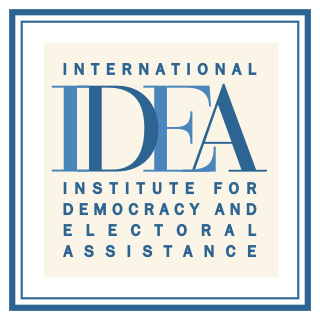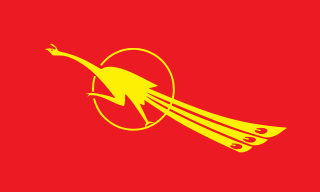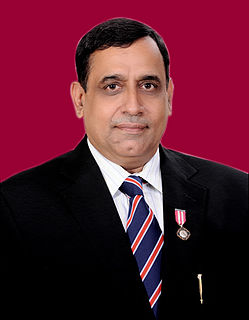The SEDES is one of the oldest Portuguese civic associations and think tanks.
The SEDES is one of the oldest Portuguese civic associations and think tanks.
SEDES was incorporated in 1970, its founders coming from different academic, social, professional and political affiliations. They joined to seek societal change by establishing a diverse social activism, organizing political opposition against the Estado Novo regime that ruled Portugal since the 1920s, and encouraging participation in academic associations, Christian organizations and trade union activities. The common denominators inspiring the founders of SEDES were humanism, socio-cultural development and democracy.
SEDES held meetings, organized working groups, and facilitated debates in various locations of Portugal; it was the first Portuguese organization to proclaim the advantages of a rapprochement with the European Community and was a pluralistic school of civics.
With the advent of democracy on 25 April 1974, many of its associates have contributed to the social and political life of the country in various political parties. Possibly there has not been a single Portuguese government since then which did not contain among its members figures associated with SEDES.
A think tank, or policy institute, is a research institute that performs research and advocacy concerning topics such as social policy, political strategy, economics, military, technology, and culture. Most think tanks are non-governmental organizations, but some are semi-autonomous agencies within government or are associated with particular political parties, businesses or the military. Think-tank funding often includes a combination of donations from wealthy individuals and personal contributions, with many also accepting government grants.
Social Democrats is a name used by a number of political parties in various countries around the world. Such parties are most commonly aligned to social democracy.

Christian democracy is a political ideology that emerged in 19th-century Europe under the influence of Catholic social teaching, as well as neo-Calvinism. It was conceived as a combination of modern democratic ideas and traditional Christian values, incorporating social justice as well as the social teachings espoused by the Catholic, Lutheran, Reformed, Pentecostal and other denominational traditions of Christianity in various parts of the world. After World War II, Catholic and Protestant movements of neo-scholasticism and the Social Gospel, respectively, played a role in shaping Christian democracy.
New Right is a term for various right-wing political groups or policies in different countries. It has also been used to describe the emergence of Eastern European parties after the collapse of the Soviet Union.

The Party for Democracy, also known as For Democracy is a centre-left political party in Chile. It states to stand in the traditions of liberal progressivism. It was founded in December 1987 by Ricardo Lagos, who aimed at forming a legal social-democratic party, as the Socialist Party of Chile (PS) remained illegal at the time. The PPD continued to function after the defeat of Pinochet. Until 1997, double membership of PPD and the PS was allowed.

Francisco Manuel Lumbrales de Sá Carneiro, GCTE, GCC, GCL was a Portuguese politician, Prime Minister of Portugal for most of 1980, and founder of the Social Democratic Party. He only held office of Prime Minister for eleven months, dying in a plane crash with his partner, "Snu" Abecassis, on 4 December 1980. A parliamentary inquiry said in 2004 that there was evidence of a bomb in the aircraft, after a 1995 inquiry had concluded there was evidence of sabotage.

Theda Skocpol is an American sociologist and political scientist, who is currently the Victor S. Thomas Professor of Government and Sociology at Harvard University. She is a highly influential figure in both sociology and political science. She is best known as an advocate of the historical-institutional and comparative approaches, as well as her "state autonomy theory". She has written widely for both popular and academic audiences. She has been President of the American Political Science Association and the Social Science History Association.
The International Political Science Association (IPSA), founded under the auspices of UNESCO in 1949, is an international scholarly association. IPSA is devoted to the advancement of political science in all parts of the world. During its history it has helped build bridges between East and West, North and South, and has promoted collaboration between scholars in both established and emerging democracies. Its aim is to create a global political science community in which all can participate, most recently it has been extending its reach in Eastern Europe and Latin America. IPSA has consultative status with the Economic and Social Council of the United Nations (ECOSOC), with the United Nations Educational Scientific and Cultural Council (UNESCO) and it is a member of the International Social Science Council and of the Global Development Network.
A political international is a transnational organization of political parties having similar ideology or political orientation. The international works together on points of agreement to co-ordinate activity.

The International Institute for Democracy and Electoral Assistance is an intergovernmental organization that works to support and strengthen democratic institutions and processes around the world, to develop sustainable, effective and legitimate democracies. It has regional offices in Europe, Latin America and the Caribbean, Asia and the Pacific and Africa and West Asia. The organization is headquartered in Stockholm, Sweden.
Portugal's redemocratization process started with the Carnation Revolution of 1974. It ended with the enactment of the Current Portuguese Constitution in 1976.

The Community of Democracies (CoD) is an intergovernmental coalition of states established in 2000. Its aim is to bring together governments, civil society and the private sector in the pursuit of the common goal of supporting democratic rules, expand political participation, advance and protect democratic freedoms, and strengthening democratic norms and institutions around the world. The task of more democracy is outlined in the Warsaw Declaration. It is disputed if the CoD qualifies as an International Organization in the legal sense.

The Friedrich Ebert Foundation is a German political party foundation associated, but independent from, the Social Democratic Party of Germany (SPD),. Established in 1925 as the political legacy of Friedrich Ebert, Germany's first democratically elected President, it is the largest and oldest of the German party-associated foundations. It is headquartered in Bonn and Berlin, and has offices and projects in over 100 countries. It is Germany's oldest organisation to promote democracy, political education, and promote students of outstanding intellectual abilities and personality.

The Faculty of Political Science of the University of Ankara is the oldest faculty of social science in Turkey, being the successor of the "Mekteb-i Mülkiye" which was established in Istanbul on February 12, 1859, under the reign of Sultan Abdulaziz, then moved to Ankara in 1936 under a new name, and was incorporated to Ankara University on April 3, 1950, under its current name. The Faculty of Political Science provides higher education in the fields of Social Science, Public Finance, Economics, Public Administration, Labor Economics, Business Administration and International Relations. It is considered to be one of the most influential institutes in the political life of Turkey.

The All Burma Federation of Student Unions (ABFSU) is an umbrella organisation for student unions in Burma and an active voice for academic freedoms and student rights throughout the country. ABFSU offers a reliable source of information to the outside world, reporting regularly on the attempts of the military government (SPDC) to intimidate and silence those involved in the pro-democracy movement.

Ravindra Kumar is a Political Scientist, Peace Educator, an Indologist, a Humanist, Cultural Anthropologist, Gandhian Thinker, and a Former Vice-Chancellor of CCS University, Meerut (India). Currently he is an Ombudsman of Swami Vivekananda Subharati University, Meerut and the editor-in-chief of Global Peace International Journal. He has written more than one hundred books and four hundred articles on greatest personalities of the Indian sub-continent, especially Gautama Buddha, Swami Vivekananda, Mahatma Gandhi, Sardar Vallabhbhai Patel and on various social, political, educational, cultural and academic issues to his credit.
The Assyrian Academic Society (AAS) was established in 1983, as an academic, educational and minority organization of Assyrians in the United States. From its foundation, AAS was based in Chicago, a city with one of the largest communities of Assyrian Americans. It was established as a non-governmental organization dedicated to promotion of Assyrian cultural and historical heritage. Its activities included organization of lectures and seminars, promotion of Assyrian literature and native language, and cooperation with other Assyrian organizations, both in the USA and worldwide. Its goal was to serve as a center for advancement and promotion of cultural developments within the Assyrian diaspora and to introduce Assyrian heritage to the outside world. The organization was a registered 501(C)(3) non-profit organization, without political affiliations.
Singaporeans for Democracy (SfD) was a Singapore based human rights non-governmental organization formed in 2010 by activist-academic Dr James Gomez and several seasoned socio-political activists. The SFD objective was to advocate for political and social reform in Singapore, as well as fostering a multi-partisan civil and political platform to promote democracy within Singapore and abroad. Members of SfD voted to dissolve the organization during their Annual General Meeting in April 2012, with a dissolution request submitted to Singapore's Registry of Societies in June 2012.

The Wilfried Martens Centre for European Studies is a think tank and political foundation of the European People's Party (EPP). The Centre strives to impact policy, influence European public opinion, and to be a key platform of cooperation for its centre-right partners. The president of the Martens Centre is former Slovak prime minister Mikuláš Dzurinda.

Diogo Vasconcelos was a Portuguese politician, who focused his work on innovation and on the fundamental role of ICT and next generation broadband for fostering innovation and supporting new decentralized models to address some of the major global societal challenges of the 21st century. Diogo addressed such issues as climate change, urbanization, globalization, ageing population, sustainable prosperity, democracy and citizen’s participation, etc. During his career, he worked with different governments in Europe and the Middle East, with the European Commission, with the UN’s High Commissioner for the Alliance of Civilizations and the European Investment Bank, OECD, among others.